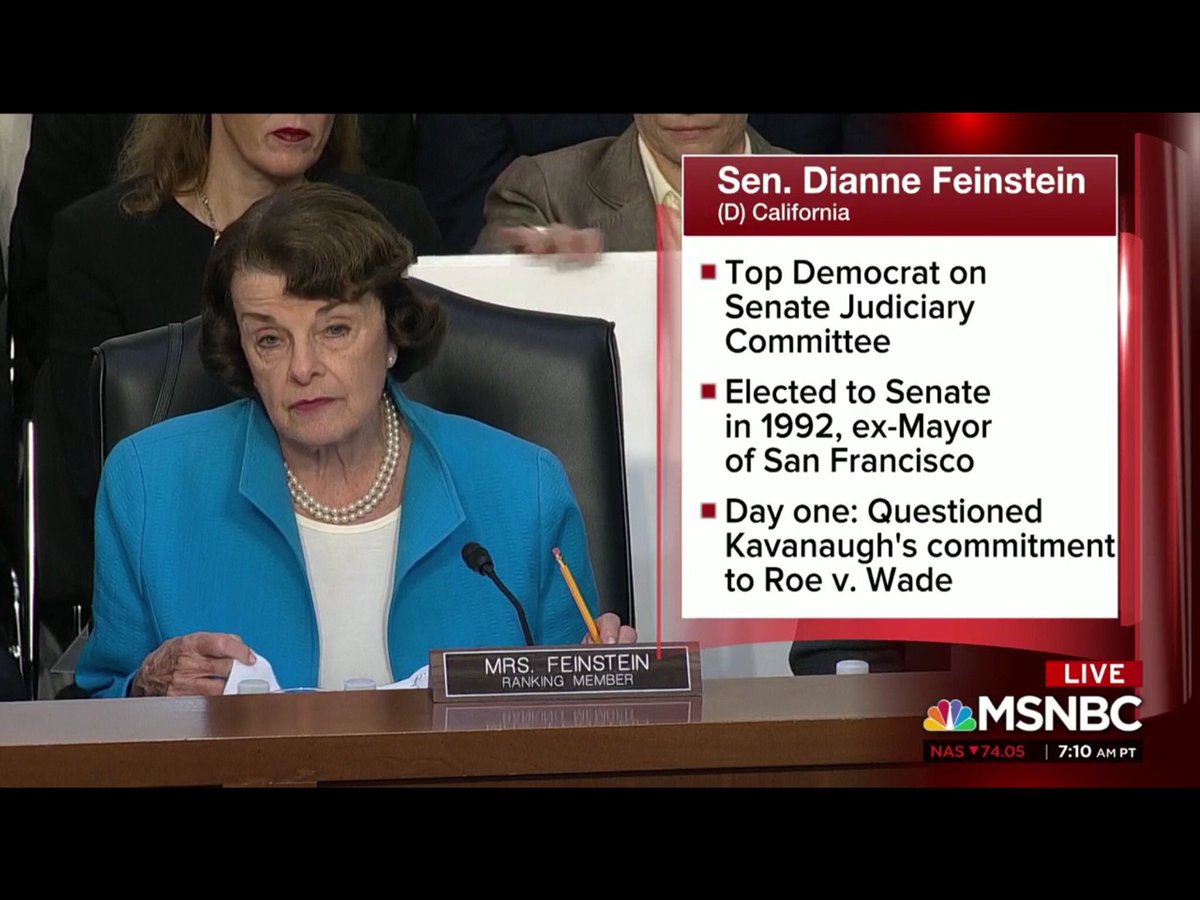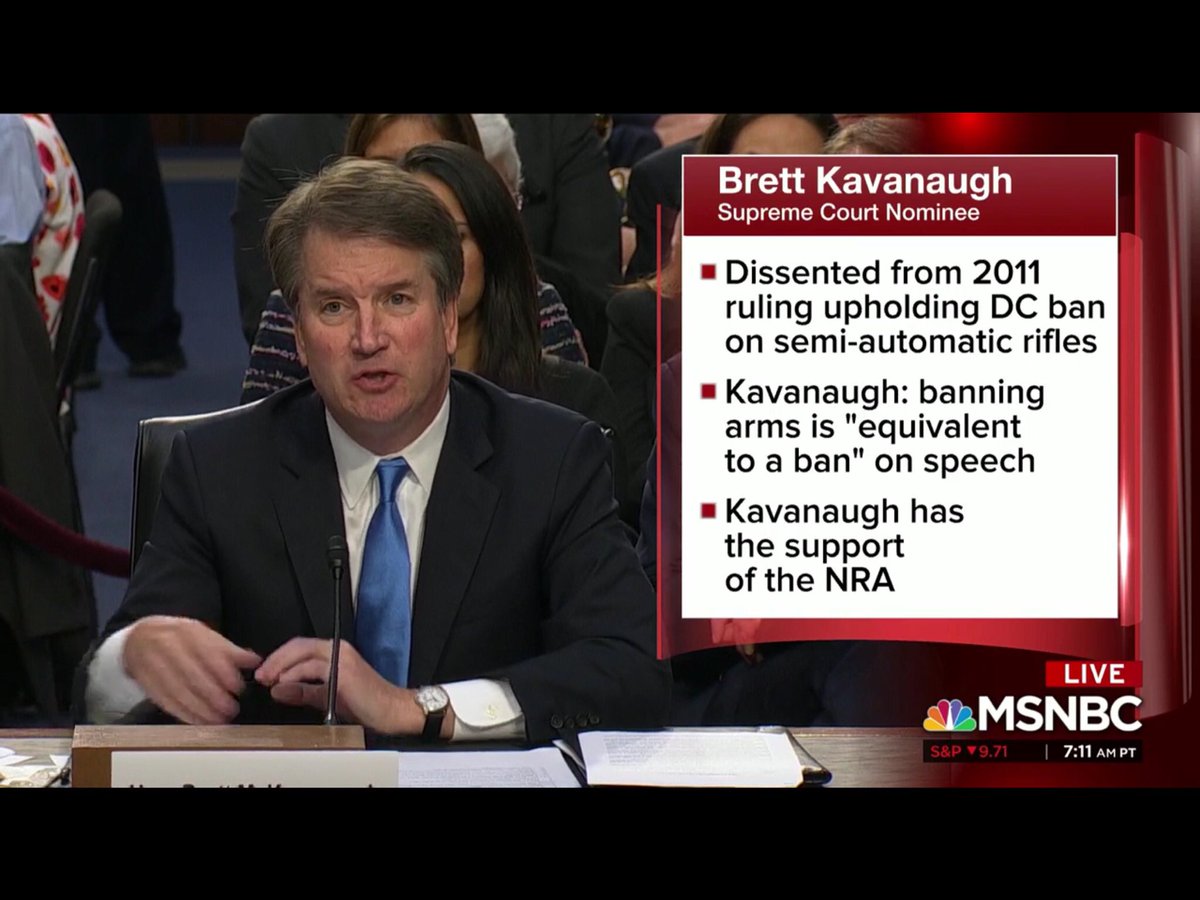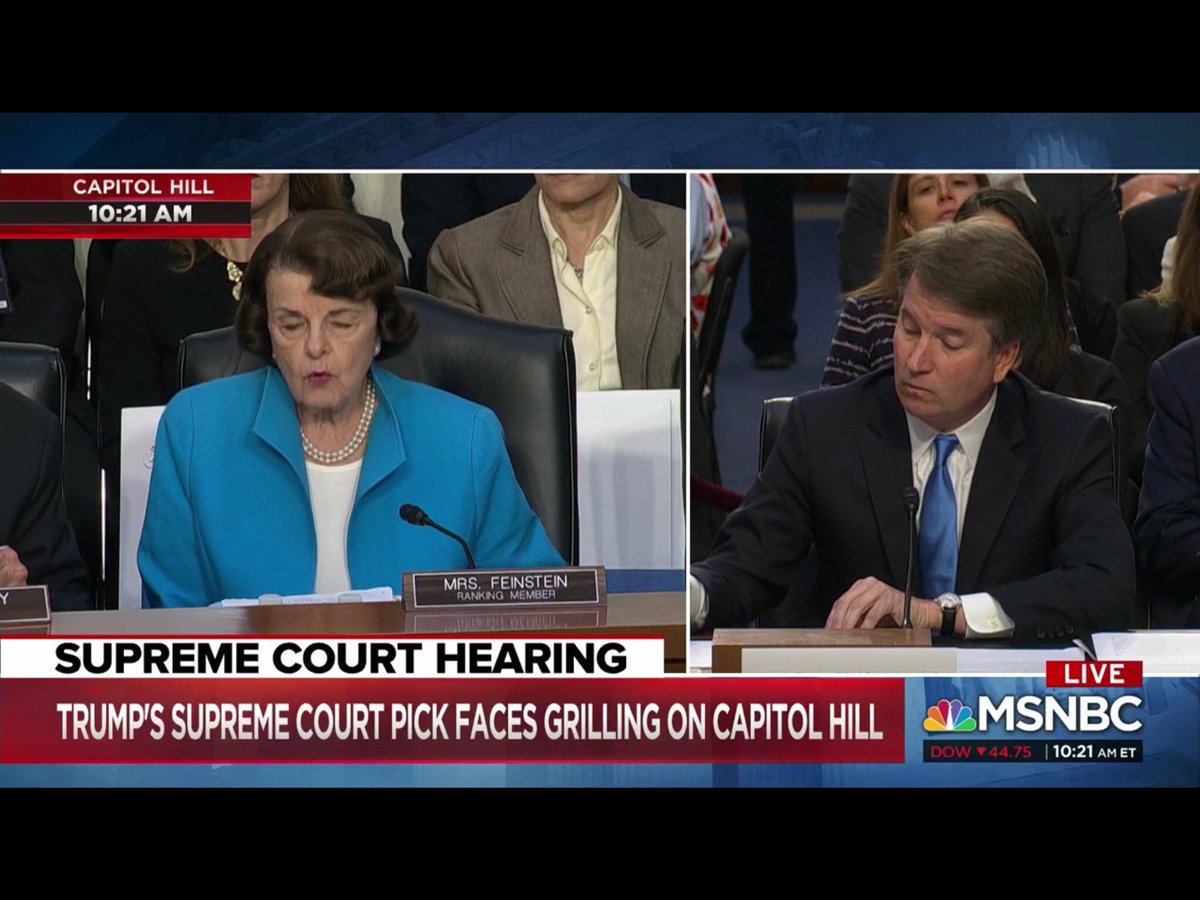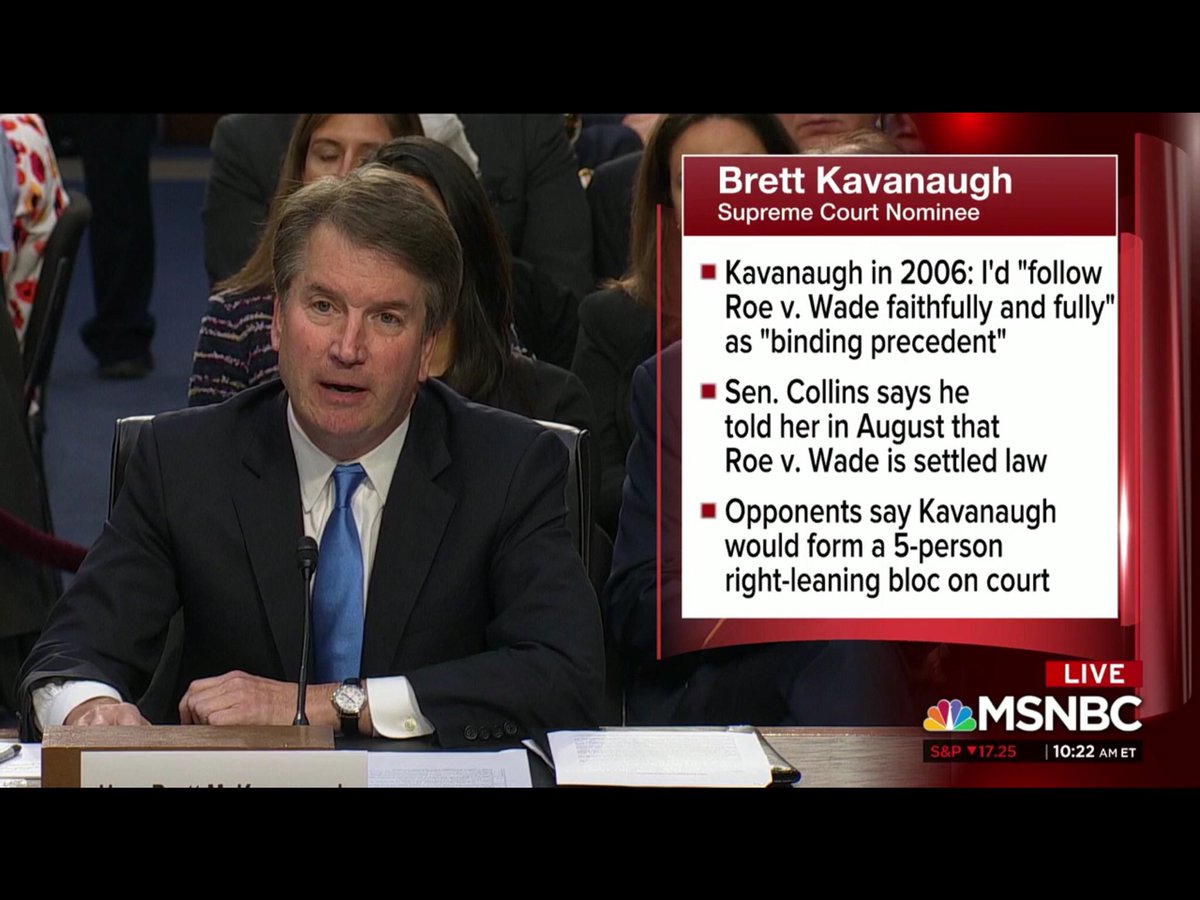And from law professors: newrepublic.com/article/151024…
Brett: Independence and backbone. Cites Youngstown, Brown v. Board, and U.S. v. Nixon, which he says he's identified as one of the court's greatest decisions.
Lee: Were you named on Trump's two lists during the campaign? Kav: No. (He was added last year.)
Kavanaugh: "It's a precedent of the Supreme Court and has been reaffirmed many times."
Kav: "No." He also seems to dispute her premise that he recommended him for the job.







